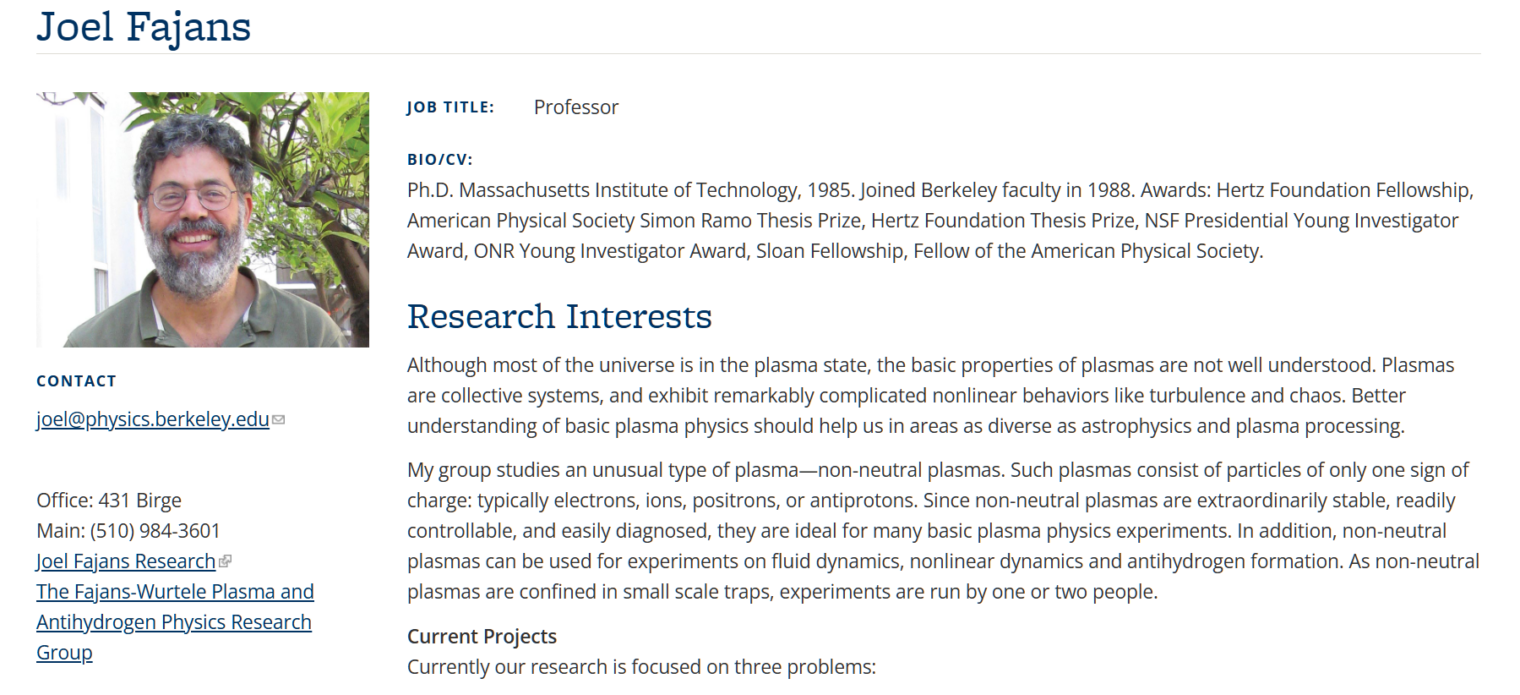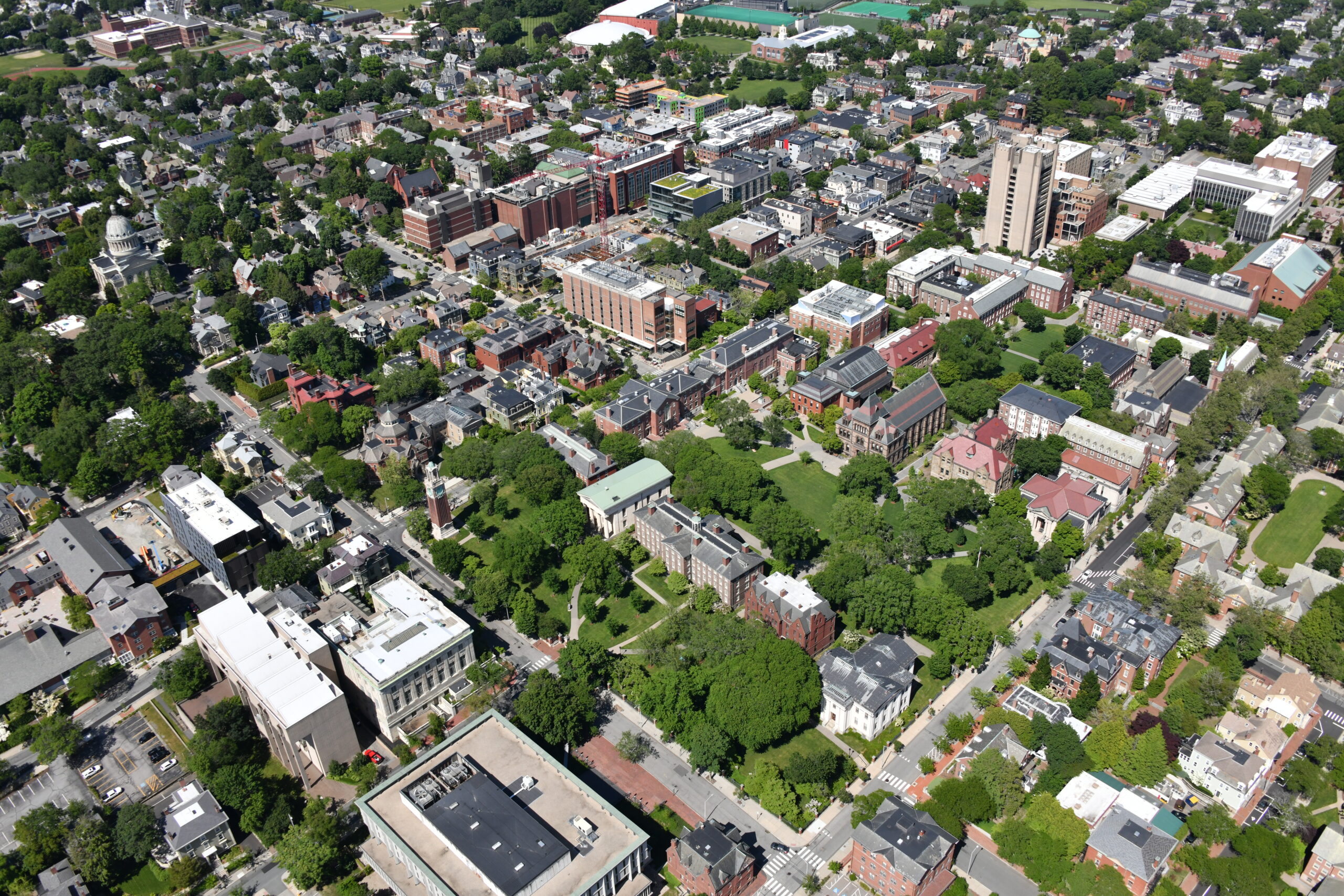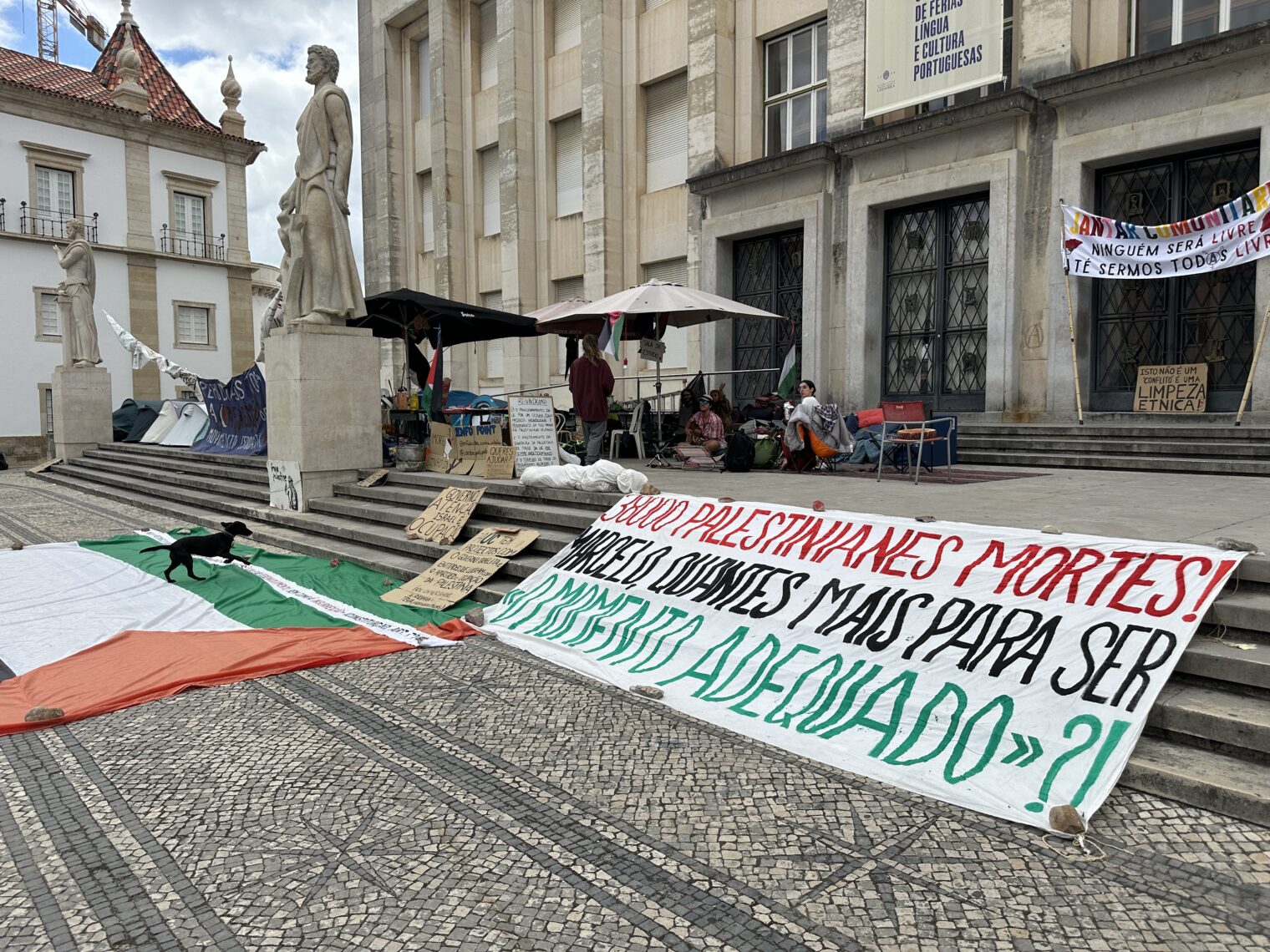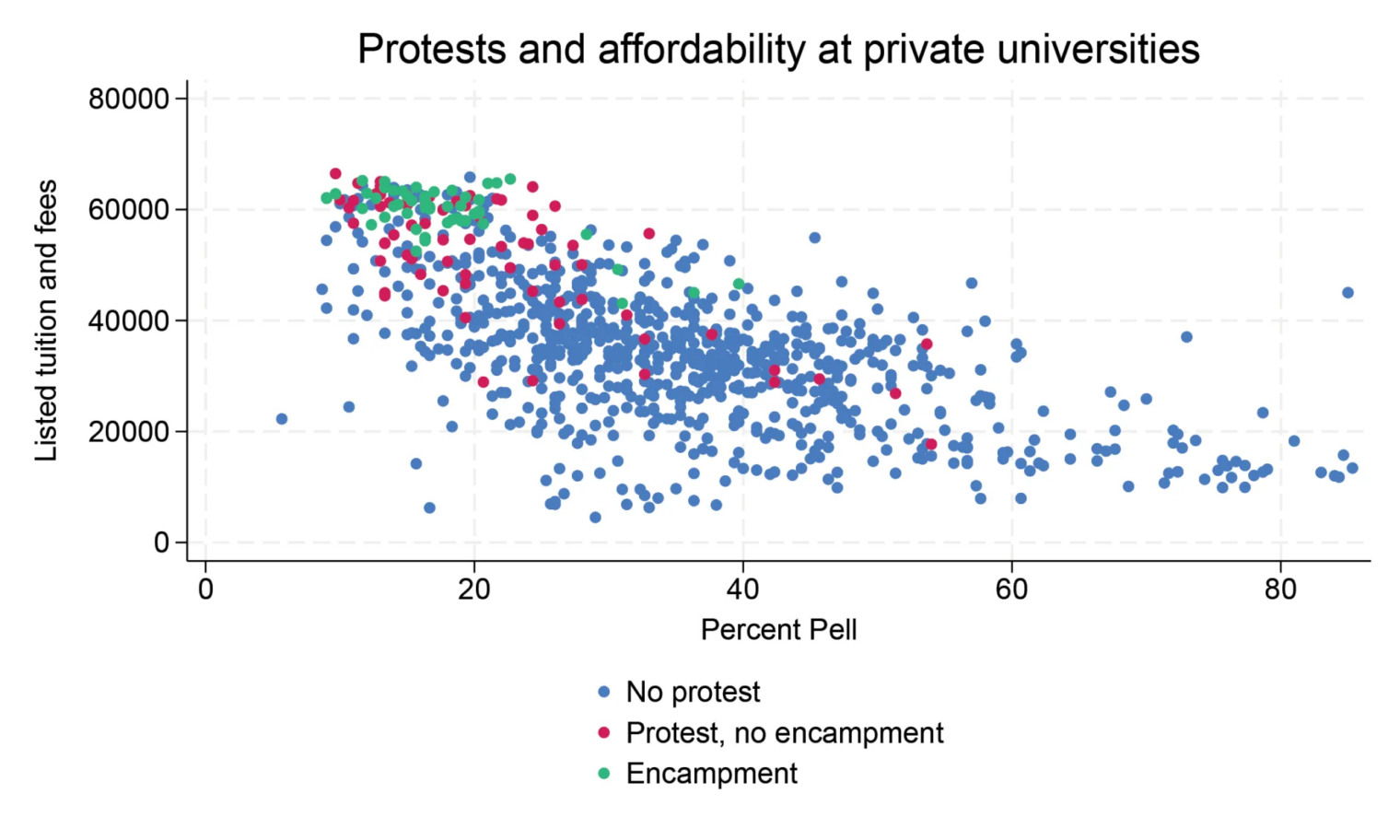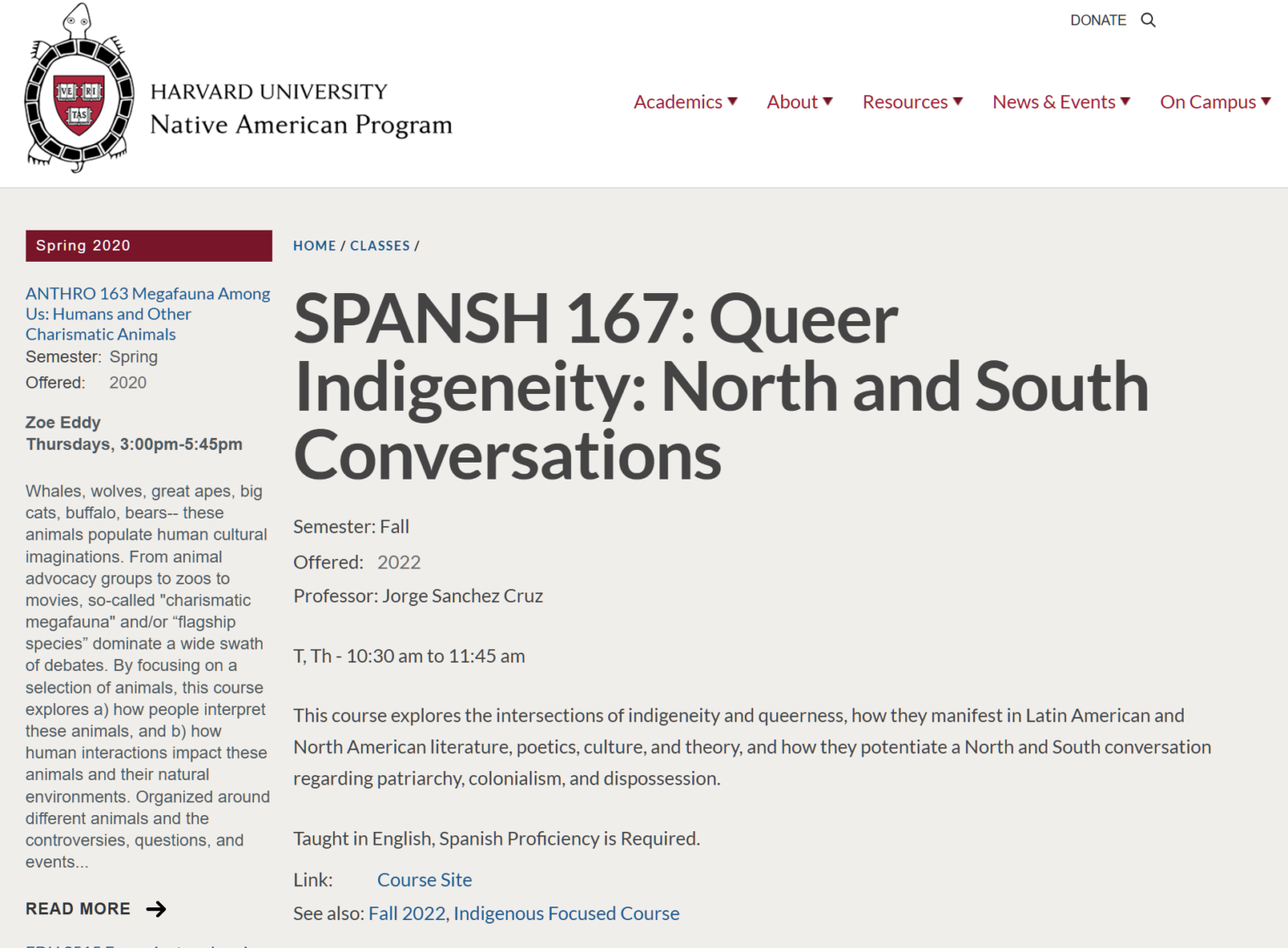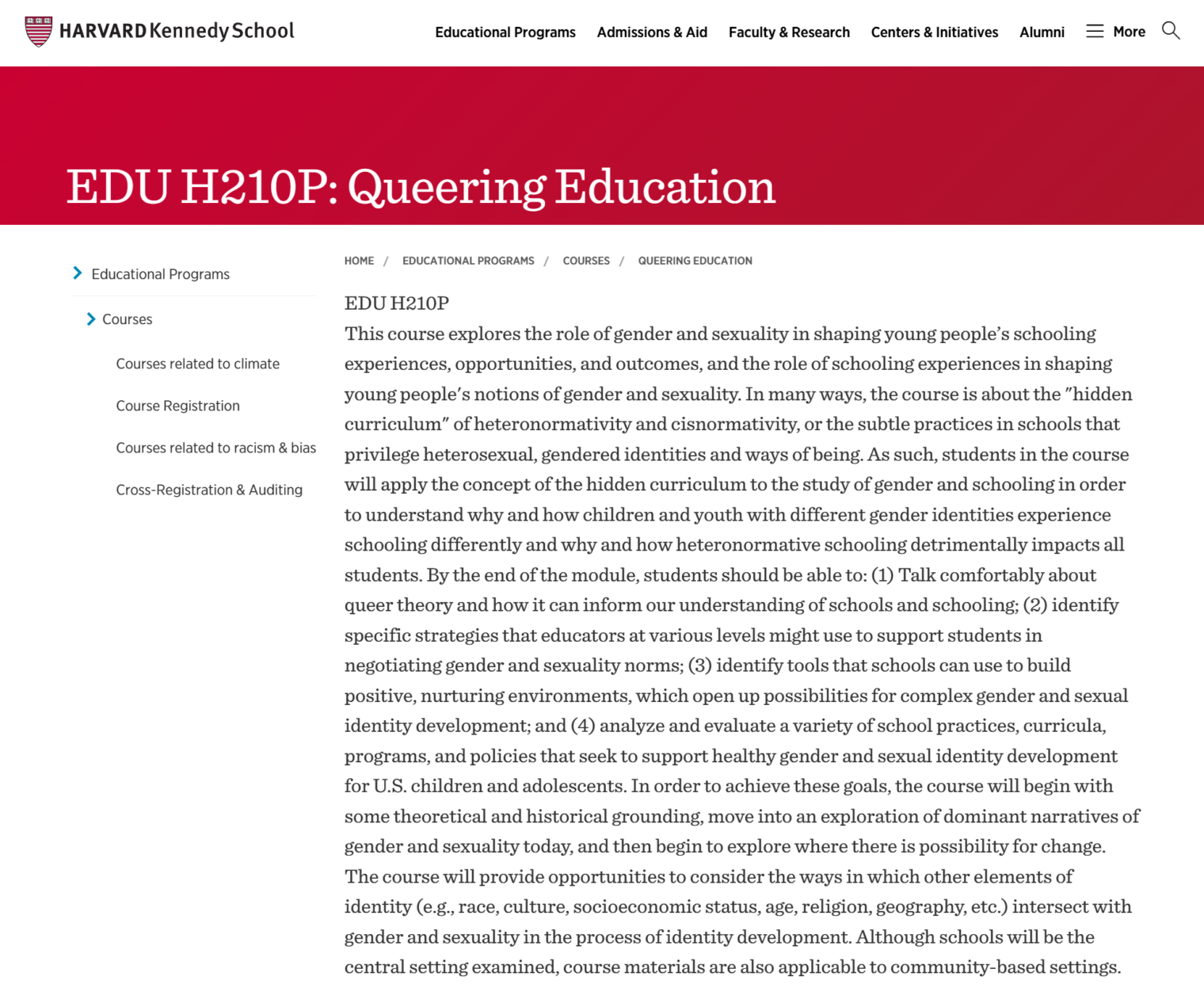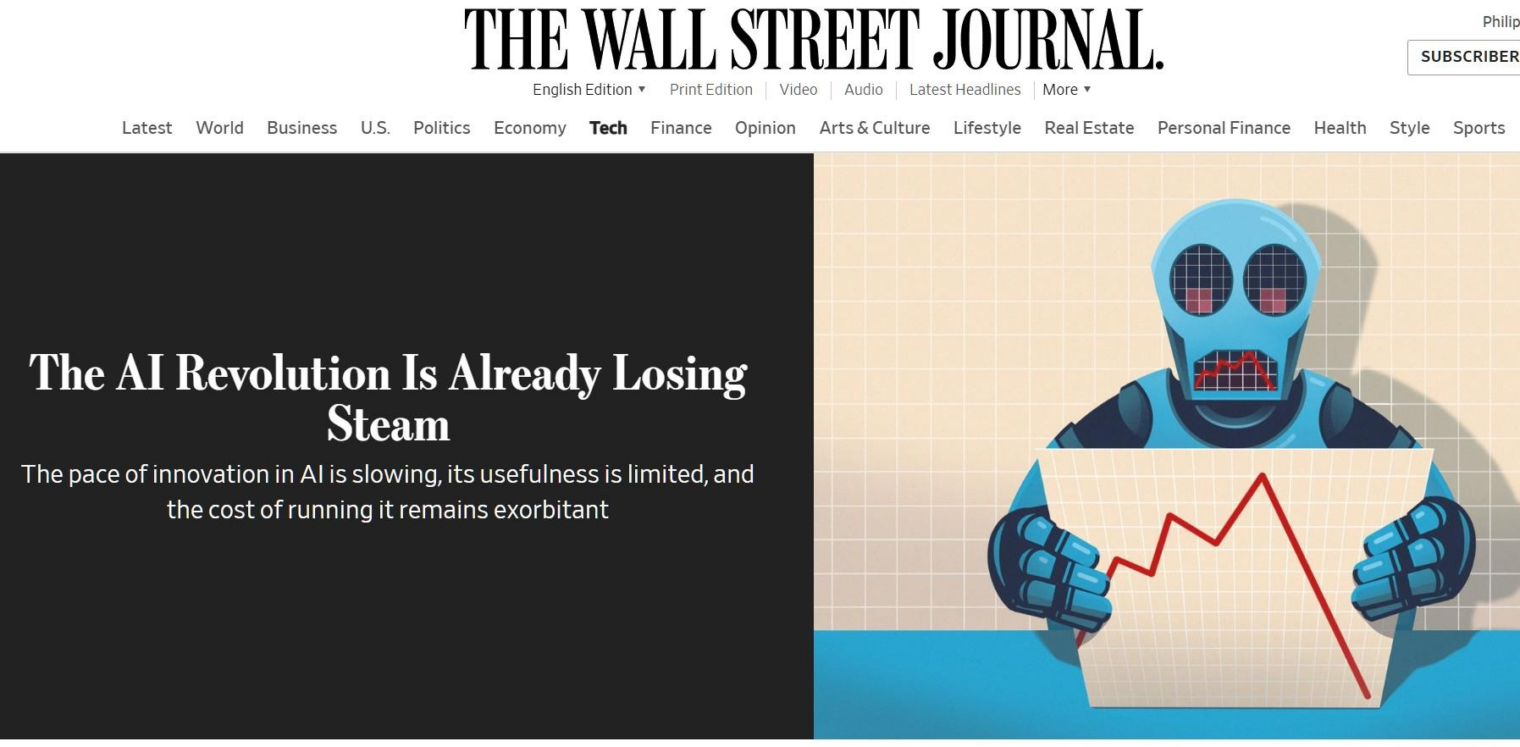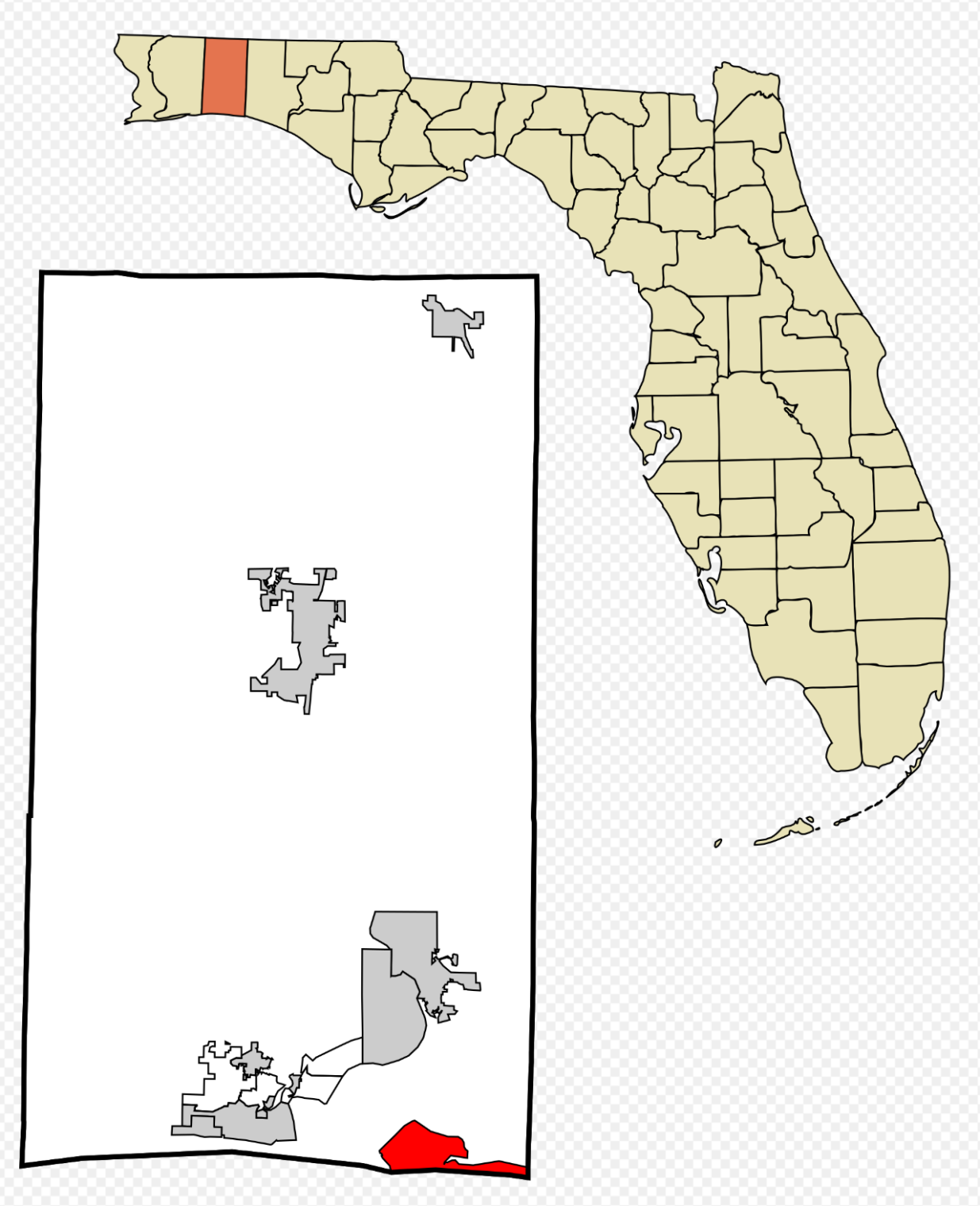Remembering Joel Fajans
Joel Fajans was the first friend that I made on arrival at MIT (1979) and, sadly, he died last month. He was a gentle soul who never got annoyed by the comparative stupidity of people who didn’t understand physics as well as he did. Although he was generally busy supervising graduate students at UC Berkeley and running experiments at CERN (see “Nothing’s the Matter With Antimatter, New Experiment Confirms” (NYT 2023)) he always had time to answer my questions. I will miss him. If he were alive today I would be asking him “How many rockets can Elon Musk send to Mars before the Earth’s orbit is changed?” Here’s an excerpt from his research page at Berkeley:
And here’s Joel at the intersection of Hollywood and physics:
One of my favorite memories of Joel is when a group of us went on a bike ride from his house in an upscale neighborhood of Berkeley (he saved some money as a young single academic and then married into a bit of inherited wealth). Accustomed to being able to bike in any direction over any terrain on a mountain bike, I managed to ride the borrowed hybrid over of those one-way parking lot tire destroyers and punctured both inner tubes. Joel had a spare tube for one and patched the other and we resumed the group cycle. Joel never complained about or harped on my incompetence.
One memory of Joel dates back to 2008 when I was in training at a Delta Airlines subsidiary. From Asiana 214: Training with passengers in the back?
About half of my class at Comair failed a stage check and received additional sim training, but I got only the bare minimum. My checkride was not too stressful either. The oral exam, which can last 2-3 hours and can include any item of minute knowledge involving regulations, the aircraft’s systems, or almost anything else aviation-related, must by regulation precede the actual flying and it tends to set the tone. The examiner to whom I was assigned was accustomed to humiliating applicants with an opening oral question that none had ever been able to answer satisfactorily. After they realized how ignorant and worthless they were he beat them down for an additional three hours before getting into the sim with the demoralized young pilot.
What was the question? “Why does the Canadair Regional Jet have both an alternating current (AC) electrical system and a direct current (DC) system as well?” As it happened, I had wondered the same thing myself just a couple of weeks earlier. I’d carefully studied the electrical diagrams for the airplane and had a one-hour phone discussion with a friend who is a physics professor at UC Berkeley. Without giving the guy any hint as to my non-aviation background or the fact that I’d discussed this with a physicist, I went up to the whiteboard and gave a 5-minute talk about how Maxwell’s equations explained that a time-varying magnetic field, like you would get from using engine power to rotate permanent magnets, generates a time-varying electric field, i.e., alternating voltage potential. This AC power is ideal for driving the heaviest load on the airplane, the hydraulic pumps for the flight controls (a spinning motor having more or less the same structure as a generator). Having AC power at a high voltage also makes it easy to have lighter wires to move the power around the airplane and then transform down to lower voltage for radios, etc. A transformer will pass AC voltage but not DC.
He said “Your oral is complete. We’re getting into the sim now.”
Searching through my Gmail, I found a good 2007 answer to one of my helicopter student’s questions:
(Student) from Principles of Helicopter Flight, p. 4: “Equilibrium means a state of zero-acceleration. When an object travels in a straight line at a constant speed, its velocity is constant (since there is no change in either speed or direction). It can then be said that the object is in equilibrium. If an object travels at a steady 50 mph on a curve, however, it must be accelerating because its direction is constantly changing and it can then not be in equilibrium.
(Joel) The solar system is in a pretty good equilibrium. (Alright, you can
prove that it isn’t but its lasted a long time. A system consisting of
just the sun and the earth would be in equilibrium.) The earth is
traveling in a circle. So the quote from “Principles…” is incorrect.A centrifugal force is a fictitious force, but as any fighter pilot
would tell you, it feels pretty real.You are correct that some force must be applied to force a plane into a
circle.However, if you want to pretend that the reference frame rotating with
the plane is “normal”, than, in that frame, the forces are
balanced…the centrifugal force is balanced by a force from the wings
pointing towards the center of rotation.The question is not profound…just semantics.
Modern thinking on how to teach physics (teaching that I don’t subscribe
to) bans mentioning fictitious forces. The claim is that it just
confuses the students.
A 2008 discussion about “why treadmill incline makes walking harder”, in which I quote Joel:
I asked Joel Fajans, physics nerd, and he said “consider what happens
if you stop walking; you go backwards but also down”. Joel says that
if you want to get fancy, you can go for a special relativity-style
argument about frames of reference.Anyway, the incline does in fact make you work harder than simply
lifting your legs from a lower position to a higher one. The fact
that your body isn’t going up doesn’t mean you aren’t working because
the treadmill is creating a new reference frame.
In response to a 2008 question about why airplane generators are rated in KVA (kilo-volt-amperes) rather than in watts:
watts are true power, while kVA are apparent power. The
difference has to do with the phase relationship between the voltage and
current. With a resistive loads (light bulbs) the voltage and current
are in perfectly in phase. Then kVA=kW. But with a pure inductive load
(or pure capacitive load) the voltage and current are 90deg out of
phase. Inductors (capacitors) do not dissipate average power; there
maybe substantial voltages across them and currents, but there is no net
power. So the load in watts is zero. The kVA load is not zero…it is
the product of the RMS voltage times the RMS current. So what is this
extra “load”? It is power sloshing back and forth between the load and
the generator…first the generator stores energy in the load, and then
the load puts the energy back into the generator.Loads in the real world tend to be somewhere between perfectly resistive
and perfectly inductive, with phase angles in the range of 10-30%.The amount of coal you have to burn is proportional to the watts, not
the KVA (assuming perfect conductors carrying the power to the load.)
But in practice, a generator may fry even with a perfect inductor
because the instantaneous demanded currents can be quite high. SO on an
airplane you would protect for kVA, not kW.
A 2008 exchange:
(me) Can you make [a jet-powered airplane] generator of equivalent power with fewer windings and lighter weight at 400 Hz. compared to 60 Hz? If you want to run the whole airplane on AC power, forgetting about any rectification to DC, does it make sense to use 400 Hz? I figured the 60 Hz. or 400 Hz. would relate more to the speed with which the rotor was spinning and not the number of windings. In that case there is a gearing issue where it would be a lot cheaper to gear the 30,000 rpm power turbine down to 400 Hz. instead of 60 Hz.
(Joel) Running at higher frequencies makes transformers much smaller. For example, I have a 200A power, 10kW power supply that runs at 60Hz and weighs about 300lbs. I have another power supply, which runs at about 30kHz, which supplies 1000A at 6kW which weighs only about 30lbs.
Most power supplies these days are “switchers”. Rather than working at 60Hz to convert AC to high quality DC, they first convert that AC to very low quality DC (glitchy, not well regulated) and convert the low quality DC to 20-60kHz. Then they take the 20-60kHz and convert it back into high quality DC. This takes a lot of extra circuitry, but is definitely worth in terms of weight and cost. All computer power supplies are switchers, for instance. The only down side is that they tend to have noise at the fundamental and harmonics of the switching frequency, which can be problematic, particularly in the sorts of physics stuff I do. (We are fighting such noise at the moment.)
Anyway, the only thing I’d quarrel with is the claim on the web site that there are extra losses at 400Hz. This isn’t quite as simple as described on the web site. Inductive “losses” aren’t really losses…to first order no power is dissipated, so no extra fuel has to be consumed. It simply means that there are voltage drops on the lines. And I can’t believe that its very large.
One issue not mentioned on the web site, which represents a real power loss, is skin depth. See http://en.wikipedia.org/wiki/Skin_depth It turns out that AC current only flows on the outer “skin” of a wire. The skin depth is the thickness of the layer in which current flows. At 60Hz in copper, this depth is about 1cm, but at 400Hz it decreases by the square root of the frequency to about 0.4cm. But this effect doesn’t matter unless the cables are of thickness comparable to the skin depth. I can’t imagine that there are any cables of radius ~0.4cm on an airplane (maybe on an AWACS plane). It is a real problem, however, on long distance transmission power lines.
Joel held strictly orthodox progressive Democrat Cambridge-/Berkeley-style political beliefs. He attributed America’s woes to the existence of stupid/uneducated people in the South, none of whom he had ever met in person. He recognized that California failed to deliver what local and state Democrats promised and assigned 100 percent of the blame for this failure to Republicans because of their role in promoting Proposition 13 and its limits on property tax. (Joel himself was a huge beneficiary of Prop 13 because he and his wife purchased a house in 1999 and, therefore, paid tax on a slightly adjusted original purchase price.) I would point out (a) that California collected a relative high percentage of residents’ income (Tax Foundation) and, (b) California Democrats were in 100% control of the state and could revoke Prop 13, impose a wealth tax, raise income and sales tax rates, charge a congestion fee for use of the roads, etc. This wouldn’t convince him to hate Republicans less. One of Joel’s core yearnings was for higher tax rates and I couldn’t persuade him that the government’s greed was infinite and that, therefore, tax rates were likely already set at a revenue-maximizing level (i.e., to get more tax revenue, the government would have to introduce new taxes, such as value-added tax, not tweak rates; see these charts of revenue vs. rates). Our final political conversation was in March 2024 and regarded the battles in Gaza (I was with him last month, but he was too weak to talk). Joel, an American secular Jew, said “a pox on both their houses”, agreeing with another Jewish Berkeley resident that Hamas and Israel were equally bad. (While this sounds like a nuanced and balanced position, it is highly favorable to the Palestinians. The same people who say that Hamas and Israel are comparable also deny that Hamas was elected to power by Palestinians. Hamas either seized power or is somehow accidentally in charge of Gaza. Once Hamas is gone, Palestinians will revert to
Full post, including comments